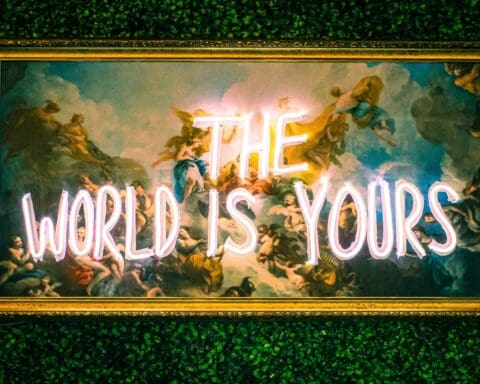Futurism is the study and practice of forecasting future trends in technology, society, economics, and culture. It is an interdisciplinary field that combines scientific research, strategic planning, and creative thinking to anticipate what lies ahead. Futurism is often used by business leaders, governments, and researchers to make informed decisions about what innovations and challenges may arise in the coming decades.
Originally, Futurism was an early 20th-century art and literary movement founded in Italy, which celebrated speed, progress, and industrialization. However, today, futurism extends far beyond art and has become a discipline focused on analyzing and shaping the trajectory of human progress.
Core Aspects of Futurism
- Trend Analysis: Studying current patterns in technology, economy, climate, and culture to predict future developments.
- Technological Foresight: Exploring how innovations in AI, biotechnology, space exploration, and automation will impact human life.
- Scenario Planning: Developing potential future scenarios to prepare for risks, opportunities, and disruptions.
- Human & Ethical Considerations: Evaluating the societal impact of emerging technologies and advancements.
Why Futurism Matters
- Drives Innovation: Companies and policymakers use futurist thinking to stay ahead of change and create cutting-edge solutions.
- Prepares for Disruption: Helps industries and governments anticipate shifts in technology, labor markets, and environmental challenges.
- Inspires Creativity: Encourages people to think beyond the present and imagine bold new possibilities for society.
- Guides Ethical Decision-Making: Addresses questions about AI ethics, sustainability, and human rights in future technologies.
Examples of Futurist Concepts
- Artificial Intelligence (AI) & Automation: How will AI replace or enhance human jobs?
- Space Colonization: Can humans live on Mars within the next century?
- Biotechnology & Longevity: Will advancements in genetics allow people to live beyond 100 years in good health?
- Sustainable Cities: How will climate change impact urban development and resource management?
- The Future of Work: Will remote work, robotics, and decentralized digital economies redefine jobs?
Futurism in Business and Society
- Tech companies invest in futurism to develop next-generation products (e.g., Elon Musk’s work on SpaceX and Tesla).
- Governments use futurism to create long-term policies on climate change, automation, and healthcare.
- Media and entertainment explore futurism through science fiction, speculative fiction, and tech predictions.
Criticism of Futurism
- Uncertainty & Speculation: Predicting the future is inherently uncertain, and some futurist ideas may never materialize.
- Techno-Optimism vs. Reality: Some futurists overestimate technological progress while underestimating social and economic challenges.
- Ethical Risks: Innovations like AI and genetic engineering raise ethical dilemmas about privacy, control, and inequality.
How to Think Like a Futurist
- Stay Curious: Follow trends in technology, science, and global issues.
- Question Assumptions: Challenge conventional wisdom and imagine alternative futures.
- Embrace Change: Adapt to new advancements rather than resisting them.
- Develop Multiple Scenarios: Consider different possible futures instead of a single prediction.
- Balance Optimism & Caution: Believe in innovation but acknowledge risks and challenges.
Futurism isn’t just about predicting the future—it’s about shaping it. Whether in technology, business, or society, thinking like a futurist helps us navigate uncertainty and build a better world.
Remember: the future isn’t something we wait for—it’s something we create. Dream big, think ahead, and take action today to shape the world of tomorrow.
✱ If you liked this article, please share it with a friend who could use inspiration.
If you have a topic in mind or a story to share anonymously or with your name, email us at [email protected]
✿ Thank you for reading!
Subscribe to be our bestie, no spam—just good vibes once a month.















